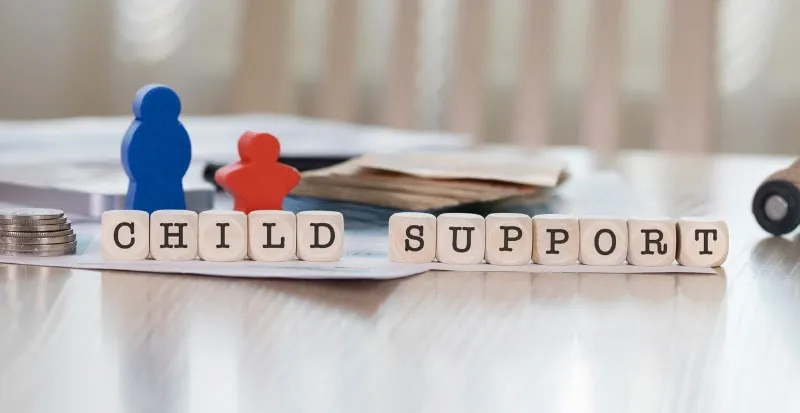Why do Co-Parents Pay Child Support?
Child support is an amount of money that one co-parent pays to the other to help cover the cost of essential items and activities with the goal of reducing financial instability for the child.
- 3 min read
- custody
- family law

One of the most common aspects of a co-parenting situation is the need for child support. It is a term most people have heard, but they may not understand the complex factors that go into determining child support agreements.

What is Child Support?
Simply put, child support is an amount of money that one co-parent pays to the other.
Child support can be voluntarily decided or court-ordered based on the parents’ choice. Contacting a family law professional and your local child support agency are essential steps to take to ensure that all child support decisions are made in line with the laws in your area.
Child support payments are intended to cover essential items like food and clothing, but also help the receiving co-parent share the responsibility of expenses that may arise from medical care, childcare, education, extracurricular activities, transportation, travel, entertainment, and more. The goal of child support is to reduce financial insecurity and reinforce stability for the children.
Payments can be made in different ways, either from the amount deduced from the wages of the person who is paying or sent and documented via other payment services.
Who Pays Child Support?
Often, the non-custodial parent makes payments to the custodial parent. The goal of child support is for the co-parents to successfully share the financial responsibilities of raising their child or children.
The amount of child support paid per month is based on many factors, notably the income of both parents. And based on each parent’s location, family law professionals help to guide and calculate child support agreements. Some examples of child support percentages can include income percentage or income share models.
In some scenarios, neither parent is required to pay child support; this is often the case in 50:50 custody splits or when the parents make the same amount of money.
If the parents are unmarried when the child is born, and the father is not listed on the birth certificate, courts must establish paternity before making decisions on child support payments.
How Long Do You Need to Pay Child Support?
According to Community Legal Aid, child support payments continue until a child reaches the age of eighteen or graduates high school. There are different rules for children living with special needs.

How Child Support Benefits Families
According to the U.S. Department of Health and Human Services, a child’s “well-being is improved by consistent emotional and financial support from both parents.” The source of well-being can come from the involvement of both parents and access to additional services through financial support. There is evidence to demonstrate that non-custodial parents who pay child support are more likely to be involved with their children for the long-term.
What Happens When Child Support is Not Paid?
There are severe repercussions for not paying child support. Depending on local laws and how far in arrears the paying co-parent is, actions the child support office can take to enforce payments include:
- Garnished Wages
- Reporting debt to credit offices
- Frozen bank accounts
- Loss of driver’s license
- Jail Time
- Being found in contempt of the court order
- In the U.S., enforcing child support payments are managed at the state-level and the non-custodial parent is sent a notice. The severity of the repercussions or the urgency of the matter is determined by the amount of child support owed.
Changing Child Support Orders
If you have a legitimate hardship that makes it challenging to continue child support payments at their current level, you must go to court to have your agreement modified.
If income changes due to a job shift, loss of a job, medical emergency, or other short-term economic hardship, the court may consider changing the child support agreement. There are many valid reasons for child support adjustments as life circumstances inevitably change for both parent and child. Providing the necessary officials with detailed documentation of a financial situation through pay stubs or medical bills is important.
Communication Channels
Communication is always the key to success in co-parenting, and that is no different as you navigate child support payments, whether formal or informal. By maintaining well-documented Records between parents, TalkingParents allows you to get back to the people who matter most—your children.
Our Secure Messaging, Accountable Calling, and Shared Calendar features allow you to stay organized and document conversations surrounding child support payments.